A colleague recently did the math: if we wanted to, editors could go to international fashion weeks all year round, bar something like two weeks. While most of them leave a lot to be desired in the fashion department, others are different. Last fall, South Korea launched its bid for the title of definitive fashion capital of Asia, hosting international editors and buyers in a weeklong rollout of shows presented at Zaha Hadid’s silver spaceship, the Dongdaemun Design Plaza. With some twelve shows a day for six days in a row, navigating the Korean fashion scene is something of an art form, and like any of the four major fashion weeks in Europe and America, the good impression lies in the quality of a few really good shows rather than in quantity. On this editor’s third visit to the shows in Seoul last week, that fact offered a certain clarity. The relevance for international guests isn’t necessarily to be found in the numerous commercial brands and established Korean designers who show there, but in a small and highly promising group of young, directional labels, who could be total game-changers for the Korean fashion industry and follow in the footsteps of international Korean household names such as the great Wooyoungmi and Juun.J — if supported the right way.
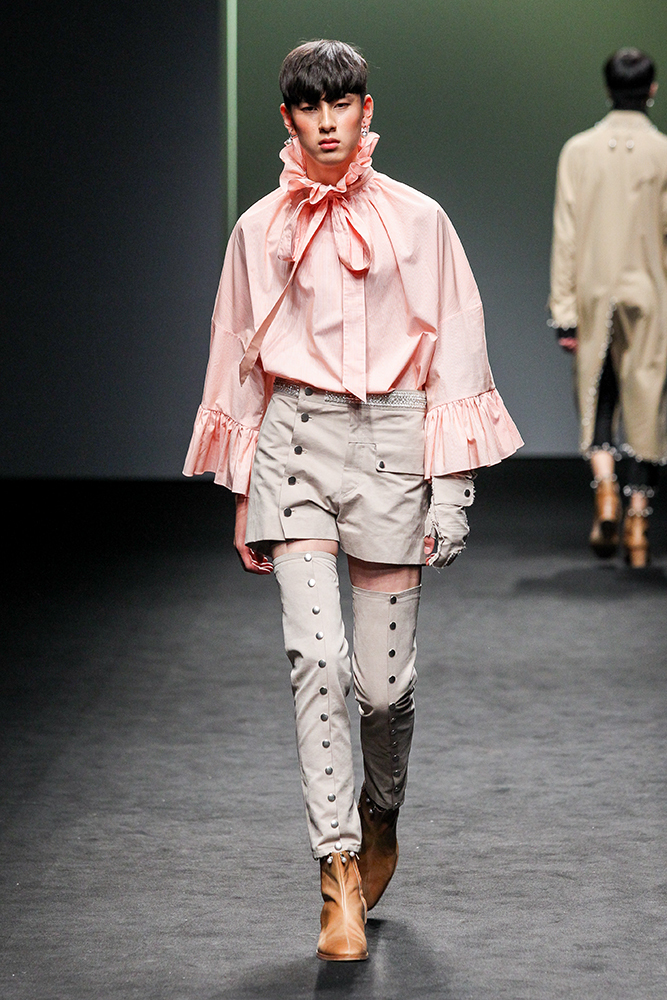
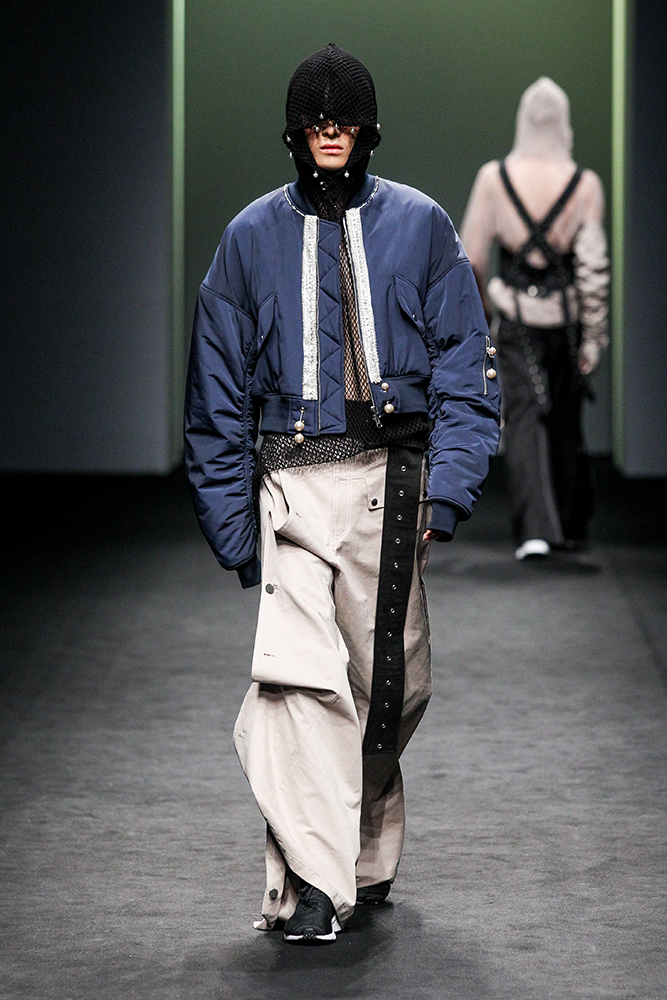
Who are they? Judging from the international turnout at their show and the applause they received at the closing dinner on the last night of Seoul Fashion Week, the number one contender for the future of Korea’s fashion industry is Blindness. Founded just two years ago by Kyu Yong Shin and Ji Sun Park, a young couple from Seoul, their work already stood out three seasons ago, offering a tightly edited and succinct message of the kind of androgynous rock ‘n’ roll men’s tailoring Korean fashion loves, fairy-dusted with sumptuous, princely detailing such as pussy-bows and regal cuffs on shirts, formidable knitwear shapes, and some very high-heeled Chelsea boots. For spring/summer 17, the designers took those elements to another level, layering fetish-y, deconstructed tailoring with what could best be described as medieval sportswear — then, embellishing it to the nines with all the pearls and rhinestones a boy could dream of. The collection had whiffs of the things that tickle our fancy these days: the voluminous urban brutality of Vetements, the delicate opulence of Wales Bonner, but unlike some of their peers on the Seoul catwalks, Blindness wasn’t derivative. If the Shin/Park duo gets the support they need, Blindness could easily turn heads on the runways of Europe.
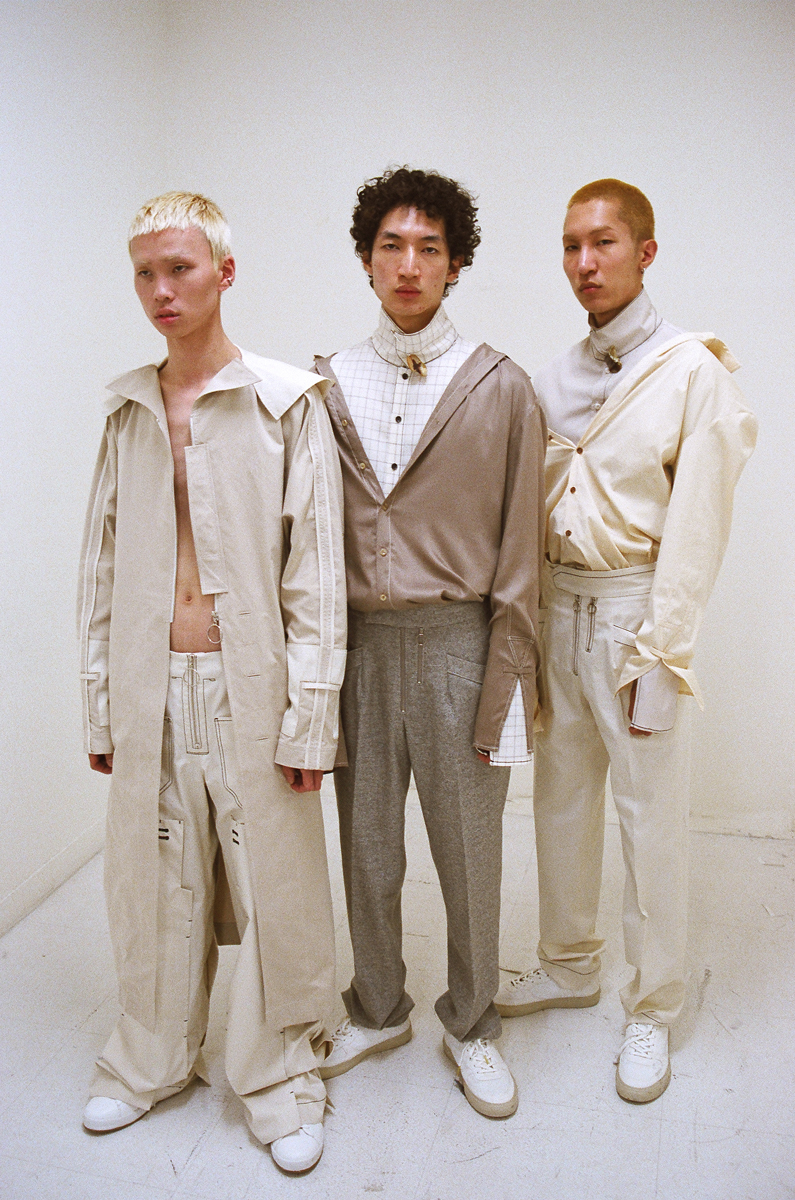
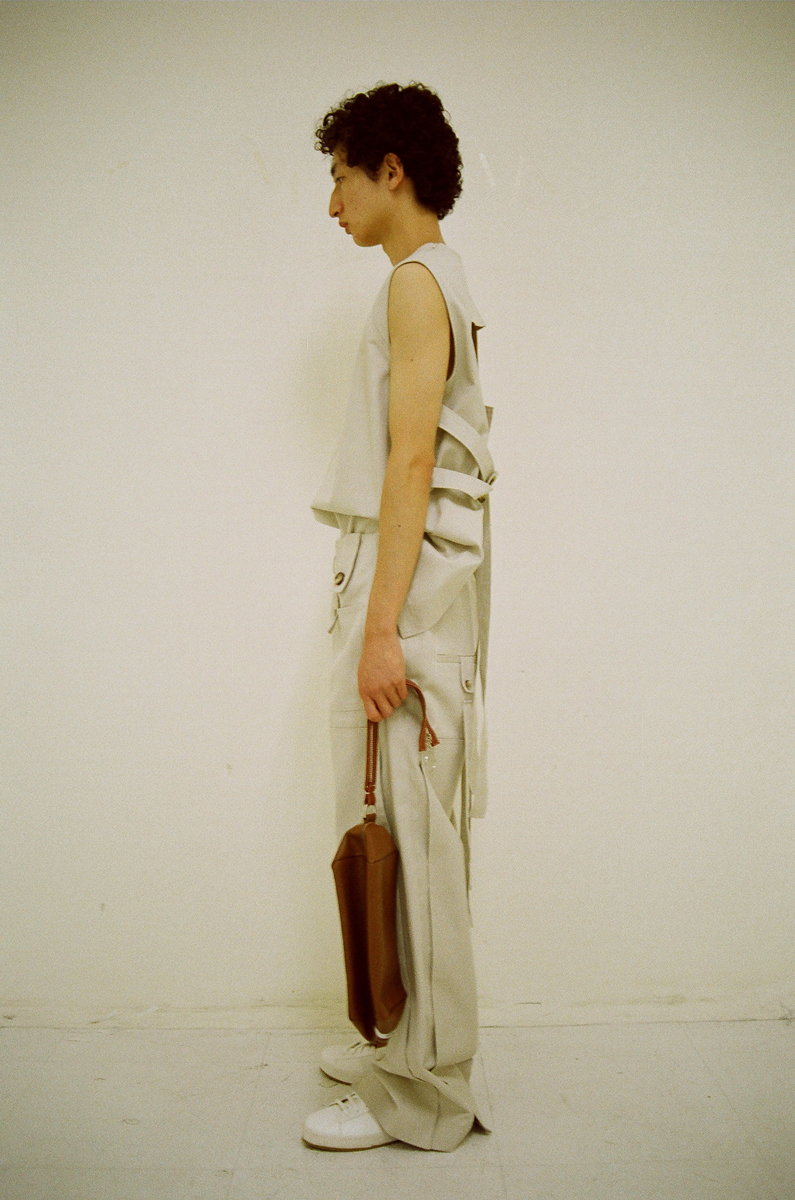
It’s those goldmine moments that make international guests come back to Seoul Fashion Week — watching young designers develop the way we’ve always done it in London. South Korea is mad for fashion. A limited edition Vetements event hosted by Matchesfashion on the first day of shows had kids camping out overnight to get their hands on $1,500 denim trousers like they were tickets for the gold circle at a Justin Bieber concert. The production of Seoul Fashion Week reflects that spirit — it’s enormous — and yet South Korea has no financial support system for designer prodigies like Blindness the way London has NewGen, which injects cash into young labels to get them off their feet. If a new brand like The-sirius is to make it big — and there’s definitely potential — Seoul Fashion Week would benefit hugely from extending their financial support to young, more directional designers. Founded by Younchan Chung, a Samsung Art and Design Institute graduate, The-sirius fuses the technological starkness ever-present in the misty Seoul cityscape with technical, tactile proficiency in futuristic cuts and silhouettes. Like the Blindness designers, there was a confidence and international quality to Chung’s work that made it superior on the runways of Seoul this season.

The-sirius and Blindness both look different to anything we see in New York, London, Milan, and Paris, and that’s key to their work. We don’t travel half way around the world to see Korean takes on something we already know — rather, it’s for a desire to see something that relates to South Korea and brings something new to the global fashion table. Doing the show rounds in Hadid’s spaceship in the industrial Dongdaemun area of Seoul, you don’t get the most comprehensive idea of the character of the city or Korean culture in general, so it’s very much up to these young designers to inform and enlighten international guests through their runways. Munsoo Kwon provided one of those illuminations, morphing the Korean affinity for strict tailoring (easily observed on the ever-so well-dressed young men around the streets of Seoul) with the plastic fantastic teen sprit of South Korea’s K-Pop scene. If the Seoul boys aren’t dressed like New Romantics in long black coats and black berets, they’re dying their hair purple and prancing around the streets in bubble gum pink hoodies. It’s very either/or chez Seoul, and it’s exciting when that’s expressed on their runways.
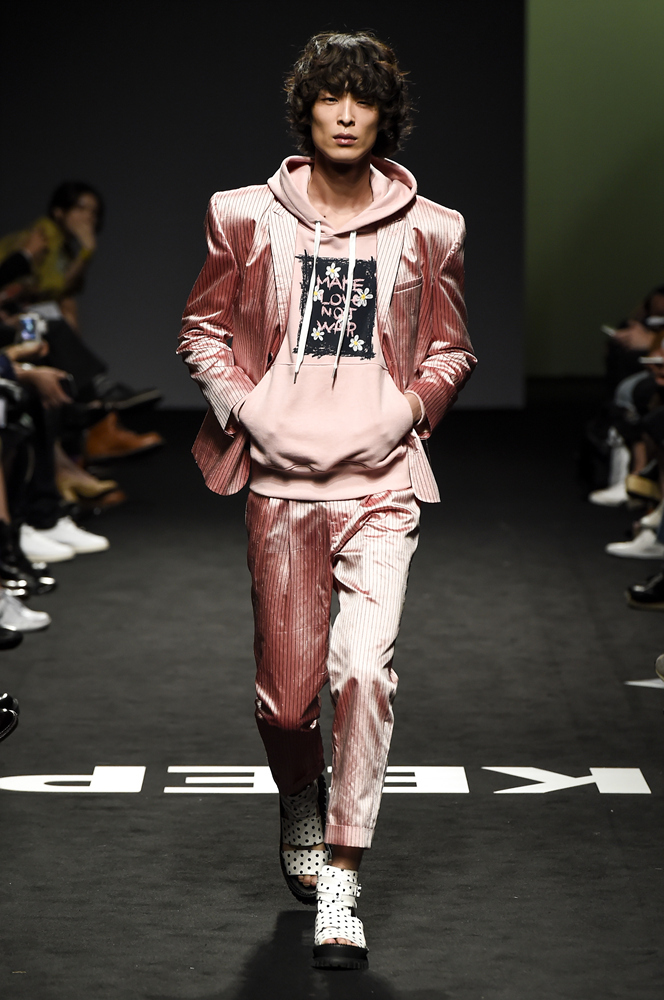
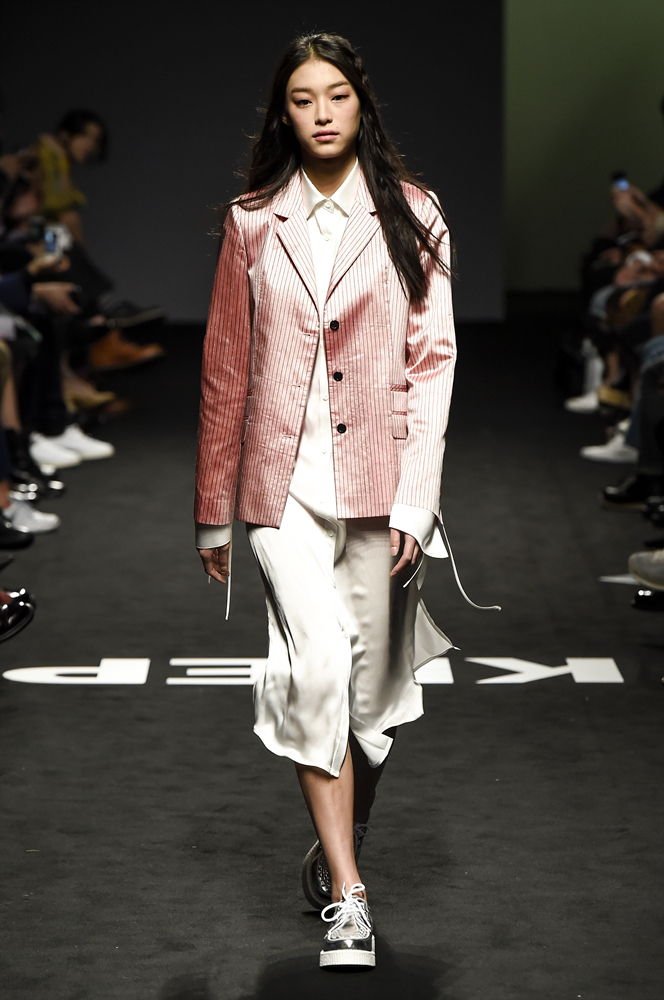
If a pattern of menswear brands has formed through these paragraphs it’s no coincidence. Just like it’s the young men in the streets of Seoul, who catch your eye with their impeccable dress sense, it’s the menswear labels of Seoul Fashion Week that stand out — not to mention the superstar boys who model them: Sup Park, Woo Seok Byeon, Bom Lee, Jin Park, and Jeon June Young. And while a city’s natural reaction to that would be to up the ante on the womenswear, Seoul’s strength when it comes to menswear is its greatest asset in a time when the men’s fashion weeks in Europe are facing the co-ed treatment of men’s shows being merged with women’s shows and no longer having their own exclusive platform. Now is the time for strong menswear to step forward and for the men’s fashion industry to step into character. As far as that goes, Seoul couldn’t be in a better position. With great powers, however, comes great responsibility and while designers like Blindness, The-sirius, and Munsoo Kwon are fabulous headliners for Seoul Fashion Week, it’s all about getting their collections out to the stores of the world — and some guest appearances on the runways of its fashion capitals, too. For South Korean fashion, world domination lies in the financial support of its young talent.
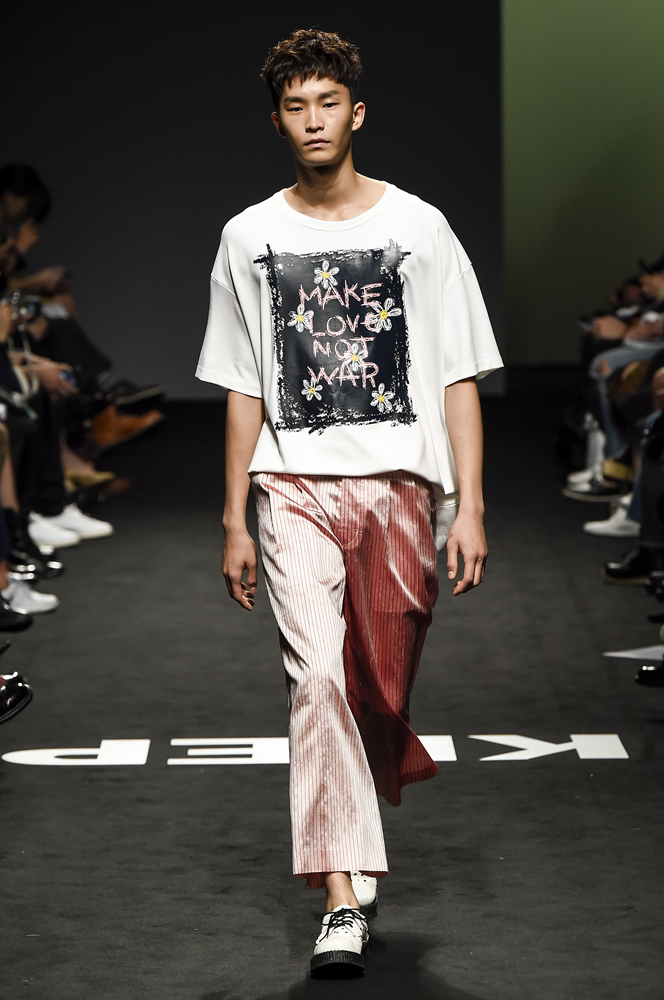
Credits
Text Anders Christian Madsen
